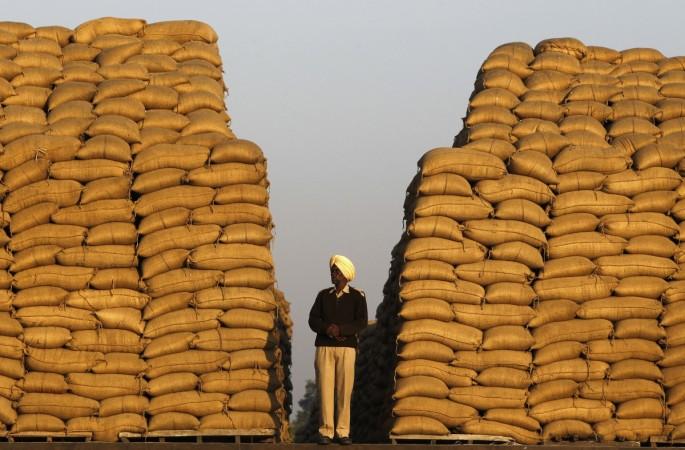The food subsidy bill India runs every year needs to be overhauled with the direct cash transfer mechanism to help control losses in the public distribution of dietary staples aimed at the poor, said the Economic Survey presented on Friday. The report, which acts as the basis for the Union Budget 2015-16, noted that food subsidy reforms needed more work.

India, which feeds 1.2 billion mouths, is the world's largest rice and wheat producer, next only to China. The democracy is also home to a third of the world's poorest people, some of whom live under conditions much worse than sub-Sahara nations, and runs a mammoth and expensive food welfare programme for the poor, which fails to live up to expectations.
For the fiscal year ending 31 March 2015, India's food subsidy bill totals $18.6 billion.
A distribution network of 4.5 lakh ration shops disburse subsidised food to over 6.5 crore people, the stated beneficiaries of the often inefficient programme.
The loss in subsidies for rice and wheat amounts to almost $2.98 billion, which the report said, "seriously" undermined the effectiveness of the distribution network. Pilferage is accepted and treated as a norm.
"Leakages can be stopped by cash transfer of the subsidy amount directly to the bank account, but the biggest challenge is most of the poor in India do not have any accounts at all," Karvy Comtrade research head of brokerage Veeresh Hiremath told Reuters.

The report called for a review of state-run grain procurement policies, particularly in the states that pay a higher price than the minimum support price level for subsidised food grains and impose high tariff barriers on the purchases.
The Food Corporation of India (FCI), the government body which handles storage and distribution of grain, some of which goes to rot, is especially known for inefficient food grain management policies.
The report recommended extending the food subsidy review to also cover stocking and distribution policies.









!['Had denied Housefull franchise as they wanted me to wear a bikini': Tia Bajpai on turning down bold scripts [Exclusive]](https://data1.ibtimes.co.in/en/full/806605/had-denied-housefull-franchise-they-wanted-me-wear-bikini-tia-bajpai-turning-down-bold.png?w=220&h=138)



